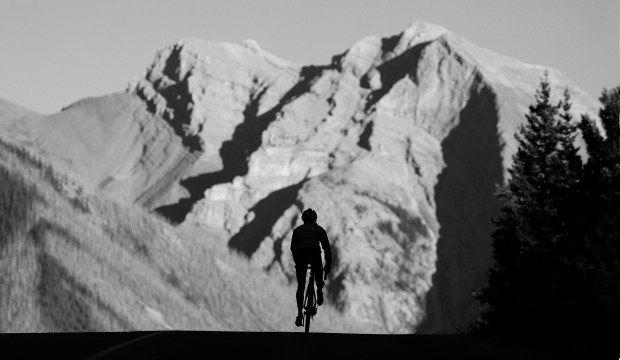
1. Give Yourself Permission to Screw Up
Cycling can demand a high level of perfection and risk taking. It’s a difficult combo: One false calculation, and a year’s worth of training can slip away. But if you beat yourself up for racing mistakes, you’ll never survive, says Bertine, adding, “You have to realize that it’s part of the journey.” Take the risks and chances you need to improve, but also make time to reflect on what you can learn from your not-so-finest moments.
2. Focus on What Matters
Bertine follows a daily routine. She rides first thing in the morning. Then she writes, since her body is still buzzing with endorphins. She saves errands and other tedious chores for afternoons when she’s tired and less likely to be productive. And she’s disciplined about focusing on the things she loves most (riding, writing, and spending time with family and friends), and trimming other, less lovable things out.
More: When Goals Aren't Enough
3. Practice Suffering—and Gratitude
Don’t wait until the moment of reckoning to see what you’re truly made of. Bertine pushes herself beyond her limits in training so that on race day she has a clear map of her pain cave. And when things get particularly miserable, she thinks about why she’s lucky to be in that moment. “Early in my career I did the Vuelta Ciclista a El Salvador. It was like seven days of racing in a country that’s like 90 degrees. I remember thinking, This is really hard, but how lucky am I to be here competing against some of the best in the world?”
4. Believe In Your Goal
When Bertine made Half the Road, a documentary about gender inequality in professional cycling, she discovered that getting a film shown at festivals is like applying to colleges: Everyone wants to be at the same, big-name events, and spots are scarce. But Bertine says she felt too strongly about the project to ever think about giving up. When you’re short on motivation, focus on why this thing you’re doing is important to you, she says.
More: Fix 3 Bad Habits Making You Slow
5. Ask for Help
At her lowest points, Bertine dodged the worst of it by seeking help—sometimes from friends, family, and coaches, sometimes from mental health professionals. If you feel like you’re slipping off the back, there’s no shame in asking someone to pull you in.
Read the original article on Bicycling.com
 Ready to ride? Search for a cycling event.
Ready to ride? Search for a cycling event.

